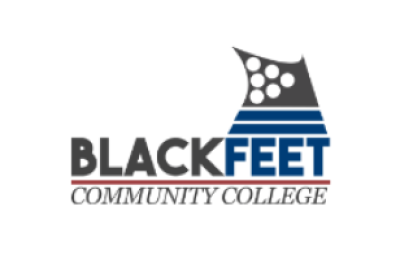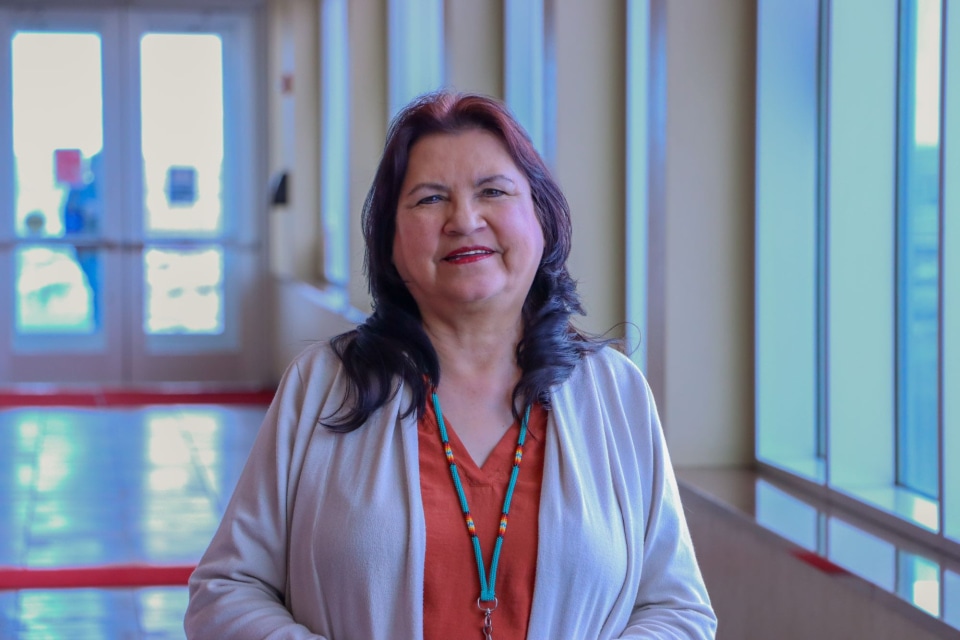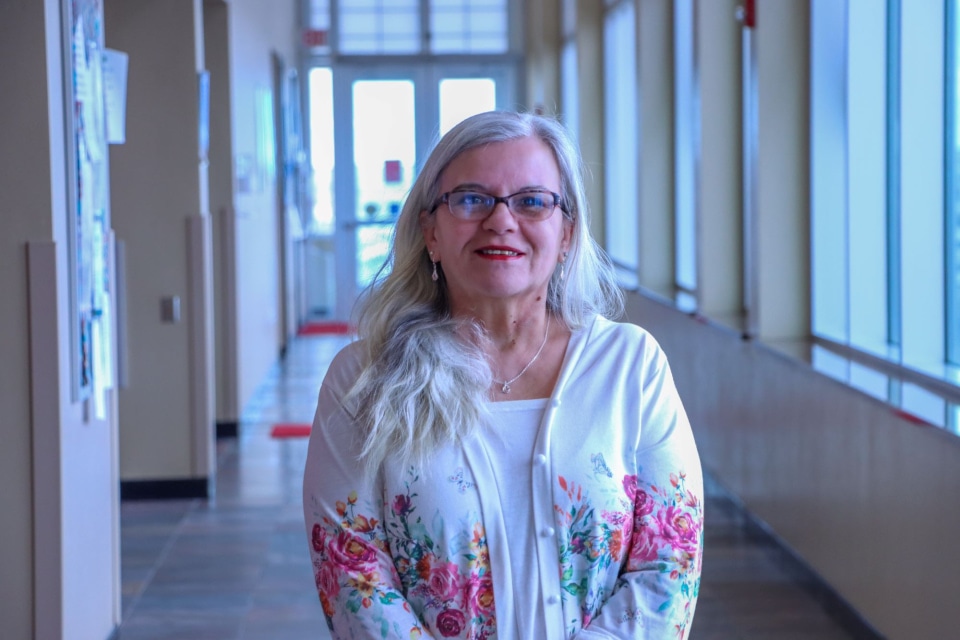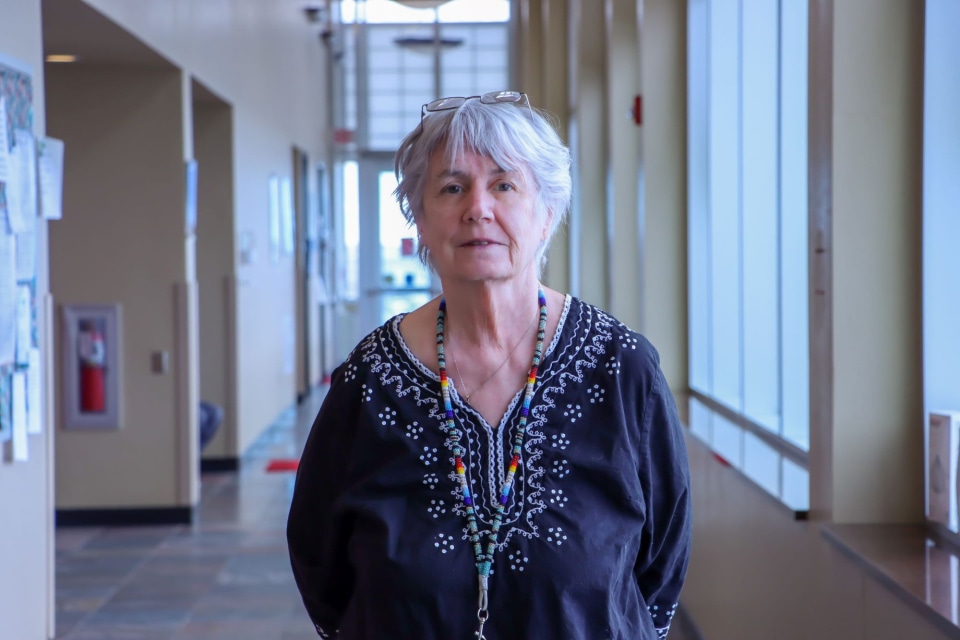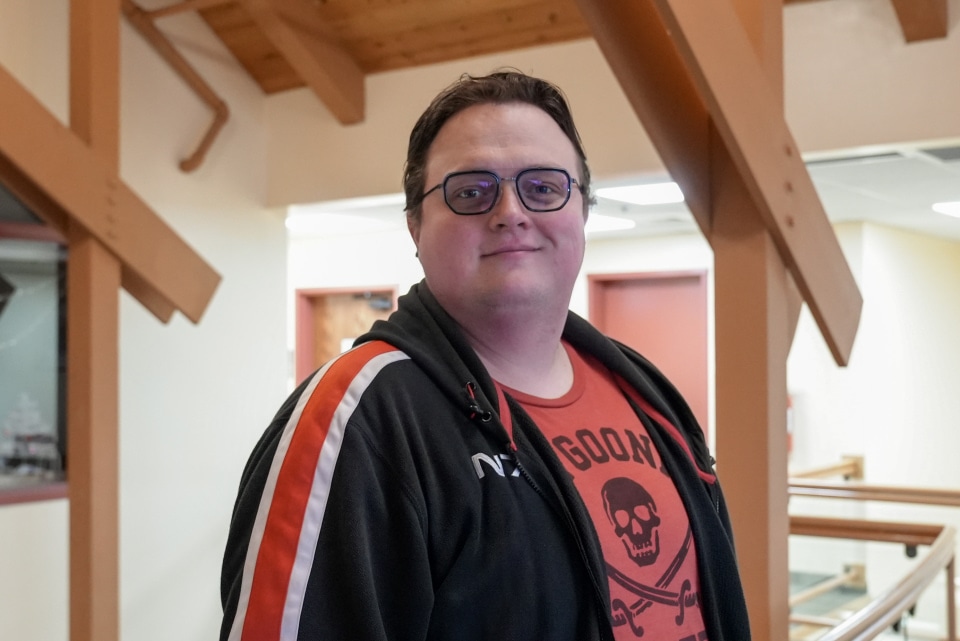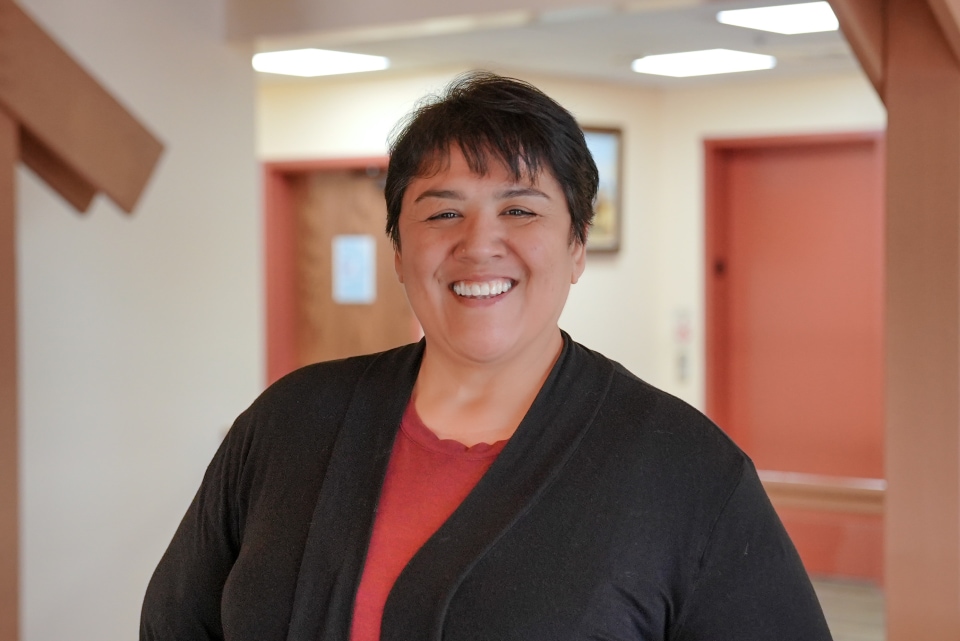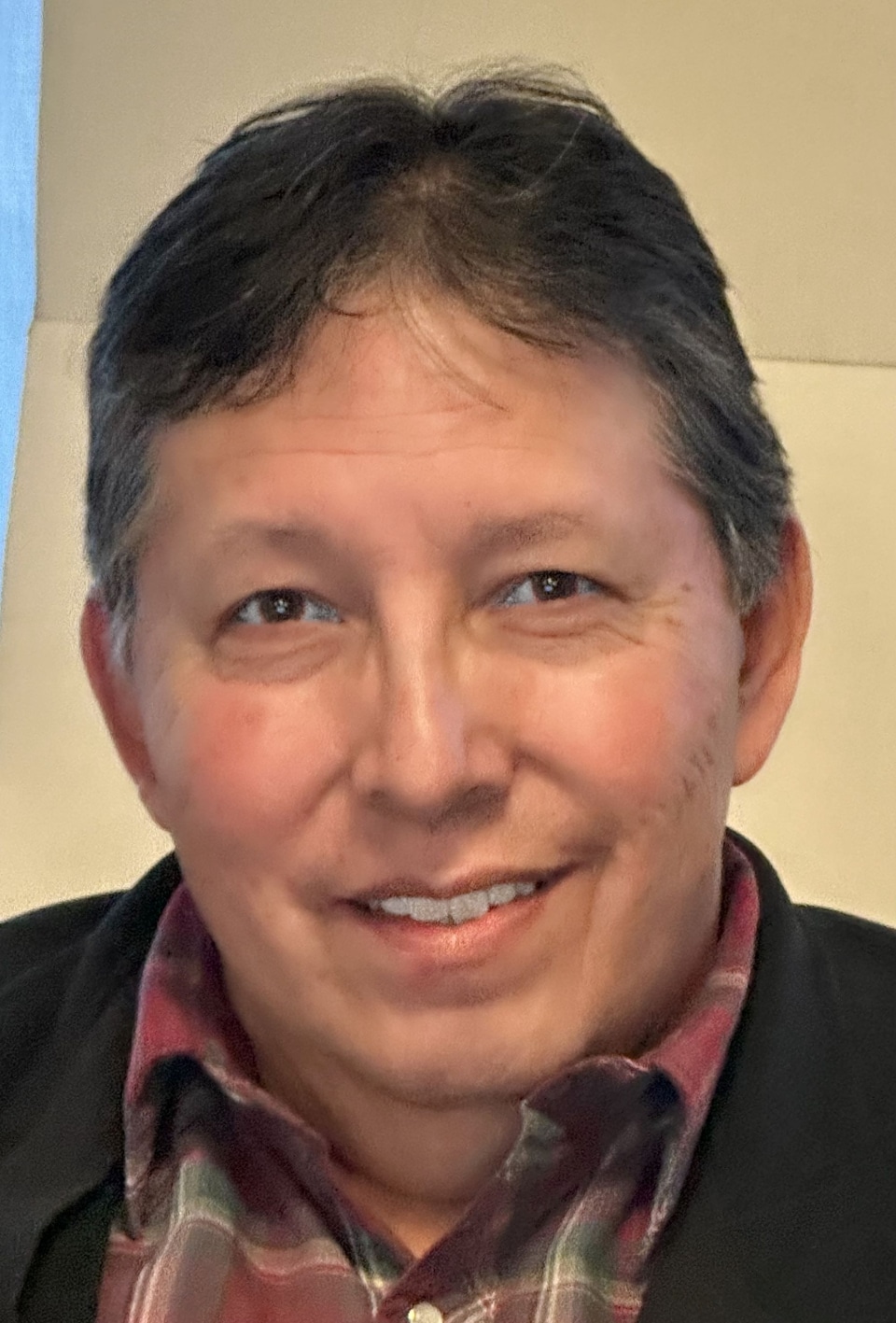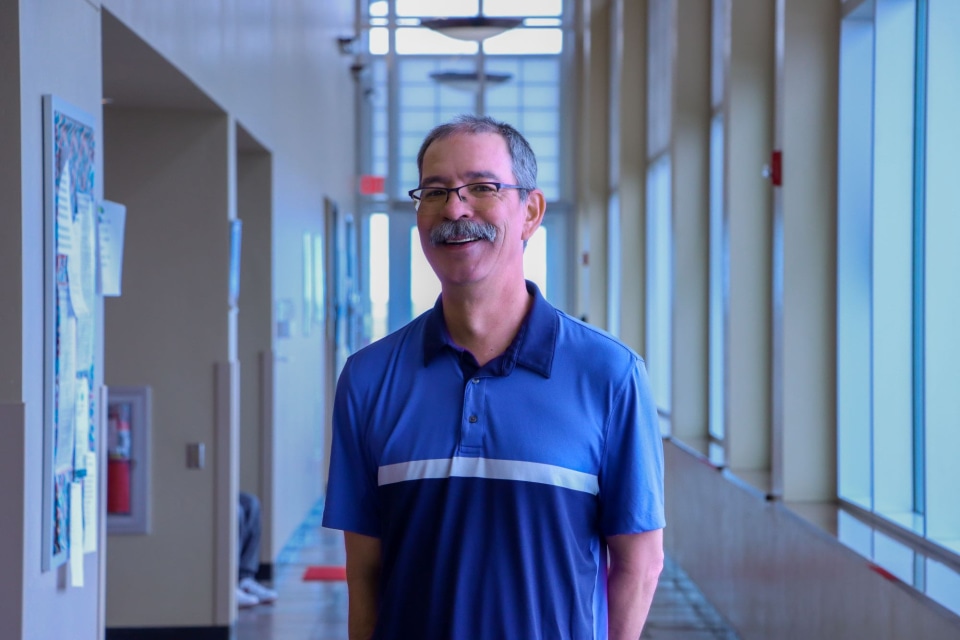Welcome to the Math/Science Division of Blackfeet Community College.
Learning outcomes
- Effective verbal, written, and graphic communication to accurately and appropriately read, inform, and convey scientific information
- Critical analysis and interpretation of information collected through research or laboratory experiences, based on scientific methodology, principles, and sound and logical reasoning
- Continuous academic preparedness in the life and physical sciences that leads to potential career and professional pathways
- Application of math operations, graphic data and algebraic formula necessary to collect, analyze, and interpret scientific data through laboratory investigation and experimentation
- Utilization of current and emerging instrumentation and related technologies in the collection and recording of scientific data
- Acquire knowledge in math, sciences, and related fields
These outcomes are met by classes that the students select to complete their program of study or core curriculum. The Math/Science division offers Associate of Science degrees in Anthropology, Hydrology Technician, Environmental Science, Pre-Engineering, and Health Science. The division also has two certificate programs in Hydrology Technician Assistant and Basic Human Subjects Research. In addition to the degree and certificate programs, the Math/Science Division provides courses in the general education curriculum.
To ensure students have met the learning outcomes for the division, each individual class has its own set of learning outcomes that forward the division’s outcomes.
The South Wind Lodge (Math/Science Building) has the newest equipment, enabling our students to receive excellent hands-on learning in our laboratories. With the unique environment on the Blackfeet Reservation and surrounding indigenous territory, students can enjoy extraordinary field experiences as well.
The math/science curriculum offers transferable courses that have the course numbers, names, and learning outcomes to match the Montana State University System. That way Blackfeet Community College courses will transfer easily to other institutions located in Montana.
Throughout the semester instructors and courses are evaluated. These evaluations are utilized to make changes in the course content or delivery of the materials.
Once a year we hold a community advisory board meeting. We invite community members to attend and learn about what we offer and how we can meet the needs of our community. We invite anyone who is interested in our students, curriculum, or institution. If you would like to be invited, please contact us and we will gladly extend an invitation.
If you have any questions, please contact me at (406) 338-5441 extension 2800, b_mathews@bfcc.edu, or ask for any of our team members.
Thank you,
Betty Henderson-MatthewsChair. Math/Science Division
Blackfeet Community College
Degree Programs
Anthropology Associate of Science (AS)
- The primary educational goal of the Anthropology degree program is to teach, research, and to impart the critical importance of understanding the human condition and its relevance to an increasingly diverse world. To accomplish this task, the Anthropology degree program curriculum will help students understand and appreciate the range of human cultures as well as the significance of biological evolution of the human condition. Anthropology is the study of people, both ancient and contemporary, in their biological, archaeological, cultural, and linguistic context. Anthropology uses a holistic approach to integrate findings from the social sciences, natural sciences, and the humanities.
- Learning Outcomes are as follows:
-
- Learn about other people’s perspectives, who we share this world with, but we often know little about.
- Appreciate how biology, cultural values, language, social institutions, and individual action forge the natural and social networks that humans occupy.
- Gain applied skills in order to protect cultural heritage, aid the disadvantaged, improve health care, find justice, and more activities which can inform and guide business and government policies and practices. We will utilize a broad education curriculum in various disciplines which may include law, medicine, business, education, public affairs, and urban planning.
Basic Human Subjects Research One Year Certificate
- The goal of this certification is to provide emerging researchers training on how to conduct ethical Human Subjects Research. This curriculum incorporates the computational and communication skills necessary to analyze data and disseminate findings to the general public. The focus of this program is to educate researchers about conducting research with Indigenous populations.
- Learning Outcomes:
-
- To apply ethical research protocols with a focus on American Indian and Alaska Native communities
- To be able to demonstrate a basic understanding of human subjects research
- To obtain the computational and communication skills needed to disseminate research data and findings
Environmental Science: Associate of Science
- The Environmental Science program focuses on natural resources management. The curriculum is intended to educate students in the management and protection of natural resources and the environment. The program is designed to meet the needs of tribal, state, and federal environmental laws and enforcement.
- Learning Outcomes:
-
- To facilitate a better understanding of the ecological, social, and economic relationships inherent in environmental resource issues
- To educate potential scientists who will assume roles in the research and management of natural resources and environment
- To prepare students for working with public and private agencies responsible for the manageme
Health Science: Associate of Science
- Health Science encompasses a variety of sub-disciplines all of which relate to the application of science to health. Healthcare is delivered through a diversity of health field professions. The Health Science degree program seeks to educate and enhance a student’s understanding of the scientific principles of biology and how they relate to health. The intent of the degree is to offer students a pre-professional plan that prepares students for higher education or training in several different disciplines related to healthcare.
- Learning Outcomes:
-
- Gain the background understanding and knowledge of science concepts to transfer into higher education or training in health fields or nursing school
- Demonstrate a preparedness of 'science concepts' in health fields that lead to potential professional careers.
- Incorporate general understanding and knowledge of health and be to apply it to everyday life
Hydrology Technician Assistant One Year Certificate
- This program provides students with entry level skills for a career in hydrology. This is a career ladder certificate that can lead to an Associate of Science Technician Degree.
- Learning Outcomes:
-
- Learn how to analyze and interpret hydrologic data in a meaningful way
- Gain the skills needed to solve problems related to water quality and availability
- Assess key concepts in hydrology related to the movement, storage and quality of groundwater and surface water interactions
Hydrology Technician: Associate of Science
- This program provides students with entry level skills for a career in Hydrology. Hydrology Technicians work closely with professional Hydrologists and/or Professional Engineers. The value of the Hydrology Technician degree to the Hydrology profession is demonstrated every day as they collect data in all weather conditions and environments, to ensure the proper collection of uniform and reliable data. Hydrology Technicians can assist professionals in the following disciplines; engineering, physical or natural sciences, forestry, soil conservation, or surveying.
- Learning Outcomes:
-
- To understand the major theories and practices of hydrology Individuals will learn some of the major foundational hydrological principles (basic theoretical knowledge).
- Students will learn how to apply hydrologic science concepts and analytical procedures in various field situations.
- Individuals will be able to demonstrate a basic understanding of essential technical and computational skills in surface and ground water quantification and quality.
- Students will have the ability to apply economic principles to analyze hydrological environmental problems.
- Knowledge and understanding of the hydrological processes sufficient enough to discuss regulations governing water laws applicable at the Tribal, State, Federal and International level.
Pre-Engineering: Associate of Science
- The Pre-Engineering curriculum is designed to prepare students to transfer to a four-year institution to pursue a Bachelor’s Degree in an engineering or math field of study. The goal of the Pre-Engineering program is to give the student a solid foundation in mathematics, physics, and the scientific skills necessary to be successful in any engineering or math program.
- Learning Outcomes:
-
- Obtain a comprehensive understanding of the physical sciences and mathematics necessary to pursue an engineering or mathematics degree
- Introduce students to the characteristics and concepts in all fields of engineering
- The curriculum offers a broad education necessary to understand the impact of engineering solutions in a global social context
Math/Science Course Descriptions
Math/Science Division Student Funding Opportunities
Department Staff Directory
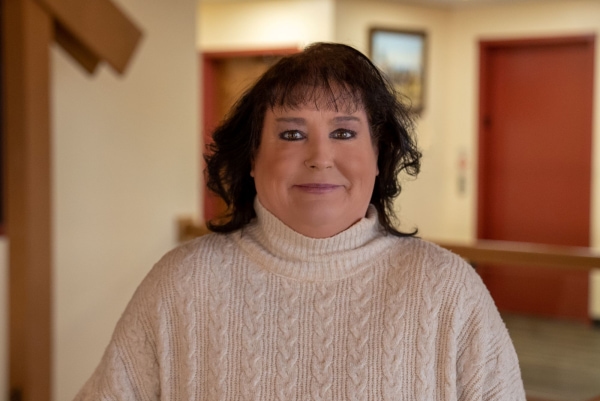
Betty Henderson-Matthews
Math/Science Division Chair

Pam Atkins
Environmental Science Instructor
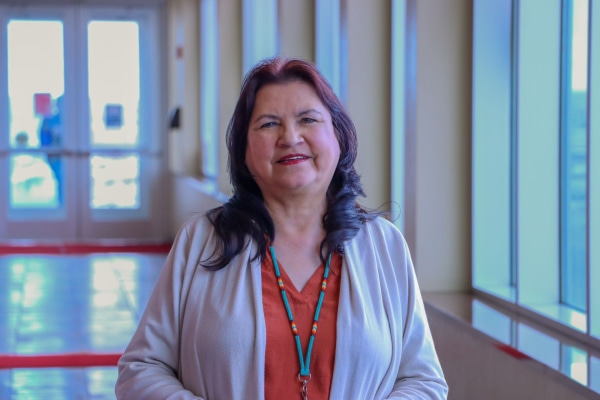
Dianna Arnoux-Whiteman
Science Instructor
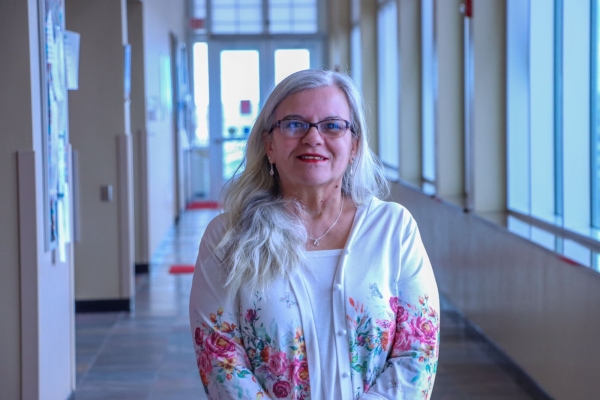
Crystal Old Chief
Administrative Assistant
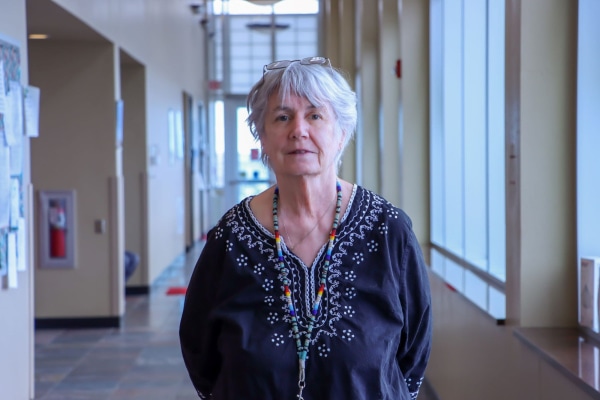
Shannon Salois
Math Instructor
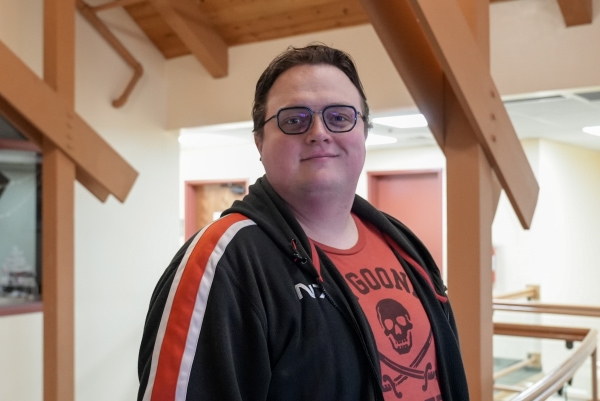
Slater Henkel
Math Instructor
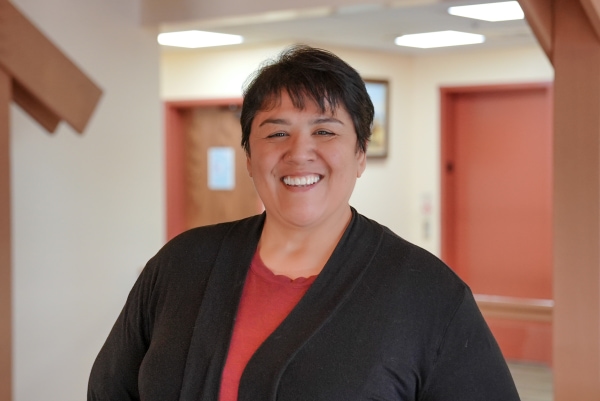
Natalie Malaterre
Narch Grant Coordinator
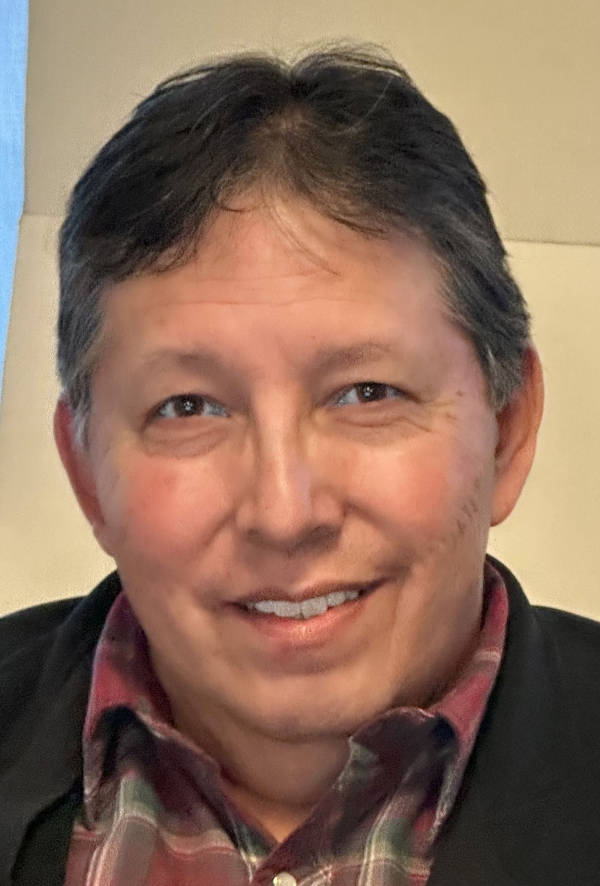
Cliff Hall
Hydrology Instructor
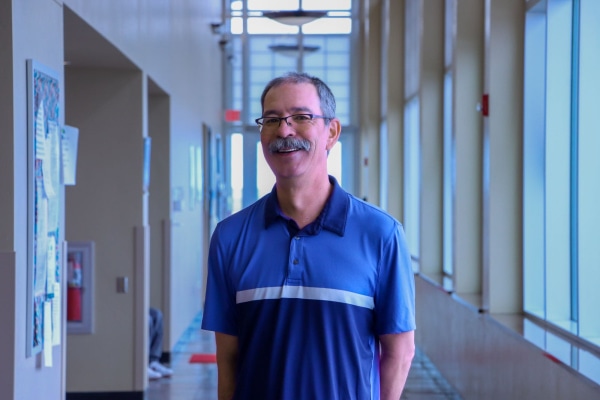
Mike McKay
Biology Instructor

Nina Rock
Research Laboratory Technician

Cody Henderson
Math & Science Instructor
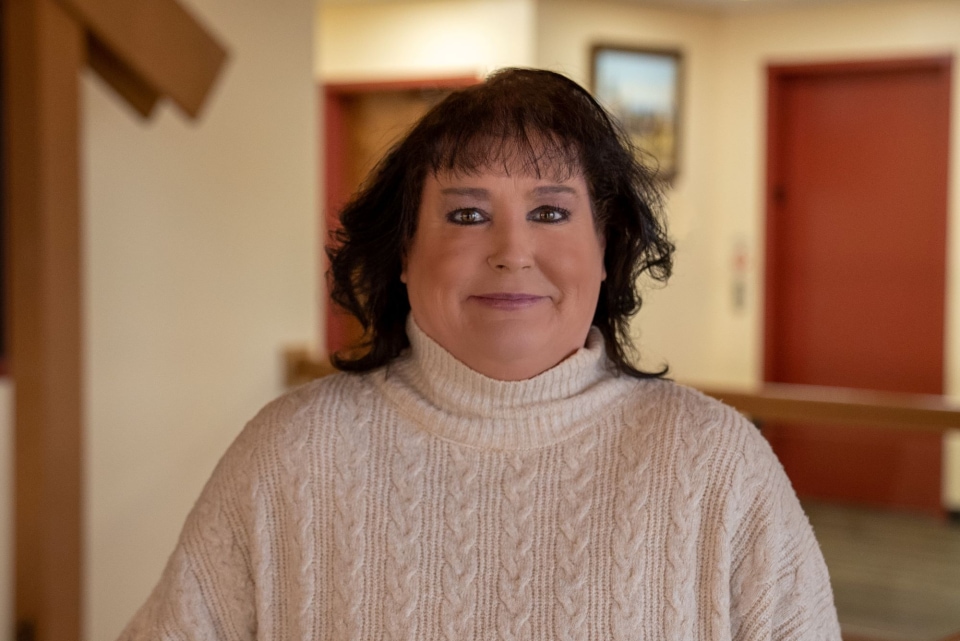
Betty Henderson-Matthews
Math/Science Division Chair
Email: b_mathews@bfcc.edu
Call: (406)338-5441 Ext. 2800
